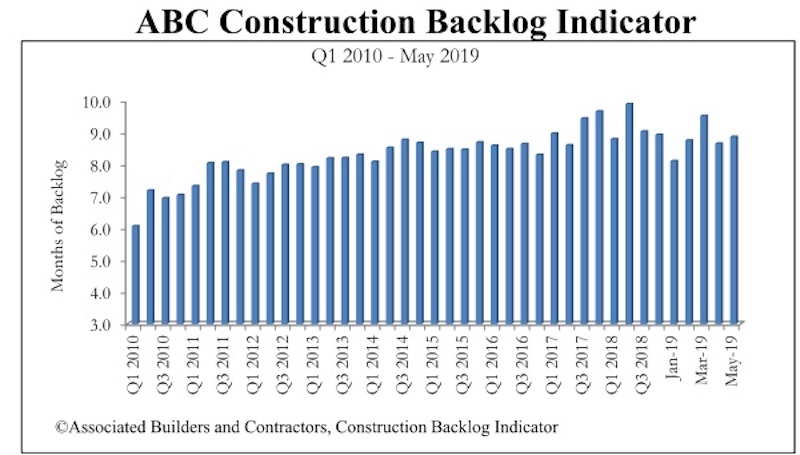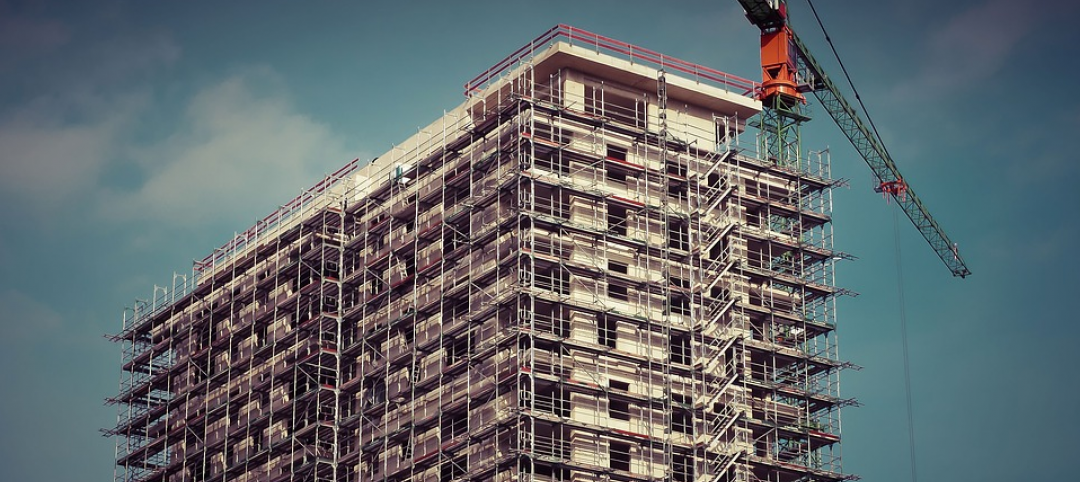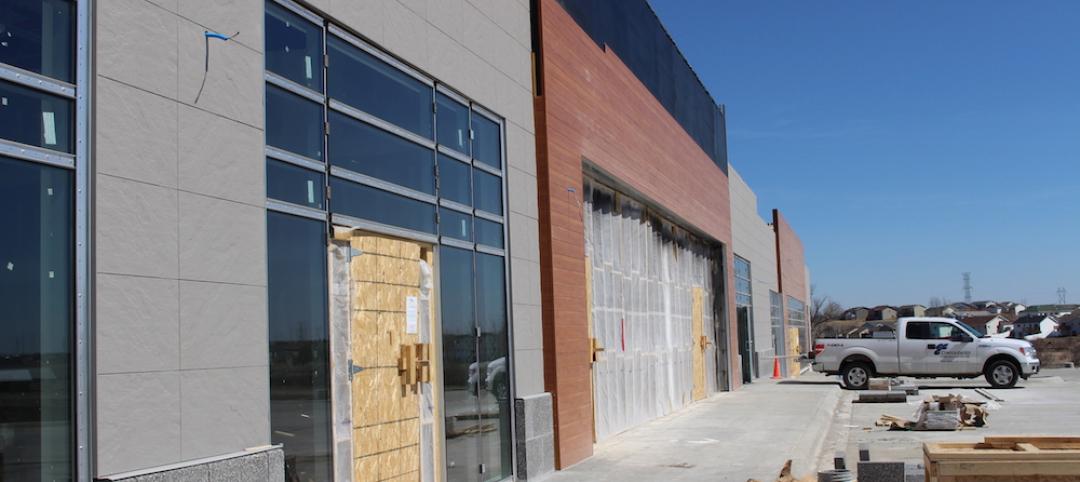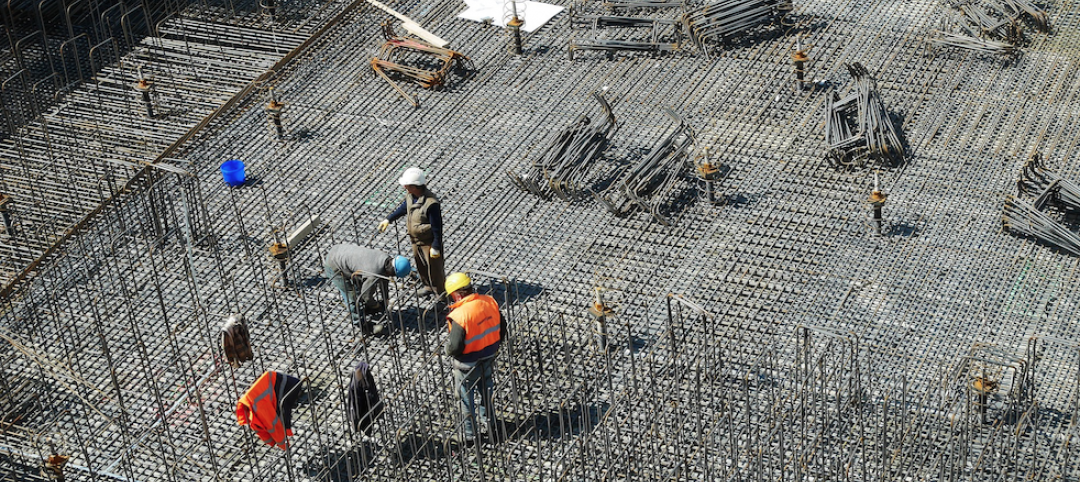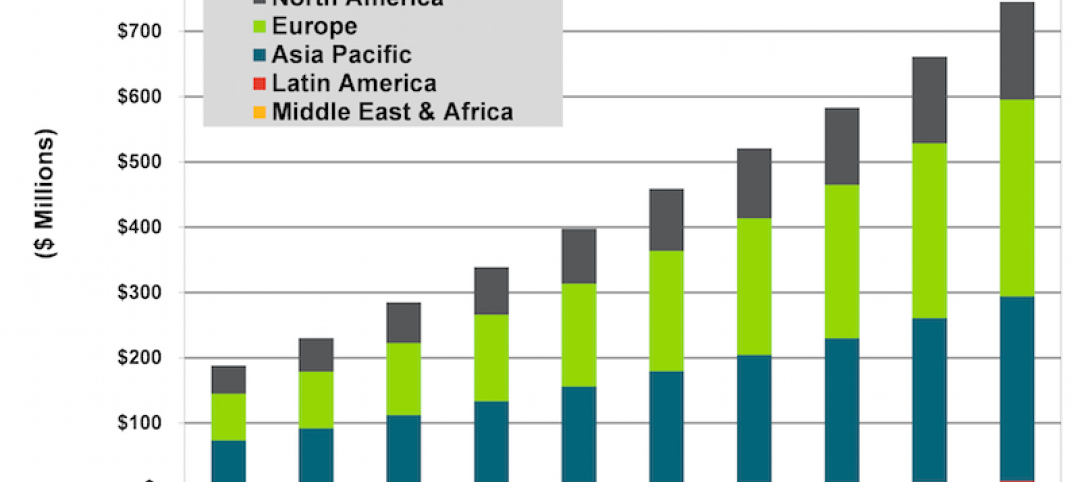Associated Builders and Contractors reported today that its Construction Backlog Indicator expanded to 8.9 months in May 2019, up 0.2 months or 2.2% since April 2019, when CBI stood at 8.7 months.
“Nonresidential construction spending continues to be a significant source of economic strength in America, and the latest Construction Backlog Indicator strongly suggests that nonresidential construction spending will continue to be a major driver of business revenue growth and employment,” said ABC Chief Economist Anirban Basu. “Despite concerns about the rising costs of material prices and labor impacting construction contracts, demand for nonresidential construction services remains elevated for now.
“In general, nonresidential construction spending patterns lag the broader economy by 12-18 months,” said Basu. “While nonresidential construction doesn’t keep pace with other industry segments during the early stages of an economic recovery, it can continue to see robust growth during the late stages of an economic expansion. With the economy continuing to demonstrate momentum along the dimensions of financial market performance, job creation, income growth and consumer spending, contractors can expect several additional quarters of spending growth.
“That said, infrastructure backlog declined sharply in May, which is likely a statistical aberration,” said Basu. “The infrastructure category is dominated by several very large firms, and changes in their idiosyncratic backlog can have major impacts on the overall reading. There is little reason to expect a meaningful dip in infrastructure spending in the near term given the improving financial health of many states and localities across the nation. Moreover, backlog in the commercial/institutional and heavy industrial segments rose in May. Several construction firms specializing in heavy industrial construction in the Midwest report substantial increases in construction backlog.”
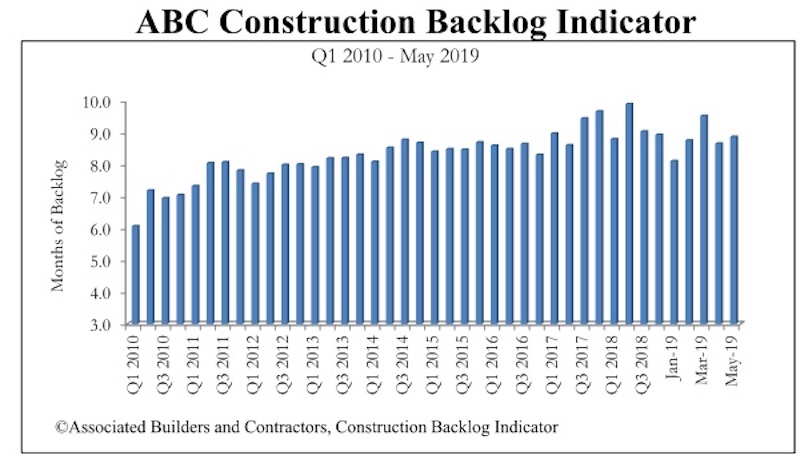
Related Stories
Market Data | Jun 14, 2016
Transwestern: Market fundamentals and global stimulus driving economic growth
A new report from commercial real estate firm Transwestern indicates steady progress for the U.S. economy. Consistent job gains, wage growth, and consumer spending have offset declining corporate profits, and global stimulus plans appear to be effective.
Market Data | Jun 7, 2016
Global construction disputes took longer to resolve in 2015
The good news: the length and value of disputes in the U.S. fell last year, according to latest Arcadis report.
Market Data | Jun 3, 2016
JLL report: Retail renovation drives construction growth in 2016
Retail construction projects were up nearly 25% year-over-year, and the industrial and office construction sectors fared well, too. Economic uncertainty looms over everything, however.
Market Data | Jun 2, 2016
ABC: Nonresidential construction spending down in April
Lower building material prices, a sluggish U.S. economy, and hesitation among private developers all factor into the 2.1% drop.
Market Data | May 20, 2016
Report: Urban area population growth slows
Older Millennials are looking to buy homes and move away to more affordable suburbs and exurbs.
Market Data | May 17, 2016
Modest growth for AIA’s Architecture Billings Index in April
The American Institute of Architects reported the April ABI score was 50.6, down from the mark of 51.9 in the previous month. This score still reflects an increase in design services.
Market Data | Apr 29, 2016
ABC: Quarterly GDP growth slowest in two years
Bureau of Economic Analysis data indicates that the U.S. output is barely growing and that nonresidential investment is down.
Market Data | Apr 20, 2016
AIA: Architecture Billings Index ends first quarter on upswing
The multi-family residential sector fared the best. The Midwest was the only U.S. region that didn't see an increase in billings.
Building Technology | Apr 11, 2016
A nascent commercial wireless sensor market is poised to ascend in the next decade
Europe and Asia will propel that growth, according to a new report from Navigant.
Industry Research | Apr 7, 2016
CBRE provides latest insight into healthcare real estate investors’ strategies
Survey respondents are targeting smaller acquisitions, at a time when market cap rates are narrowing for different product types.


